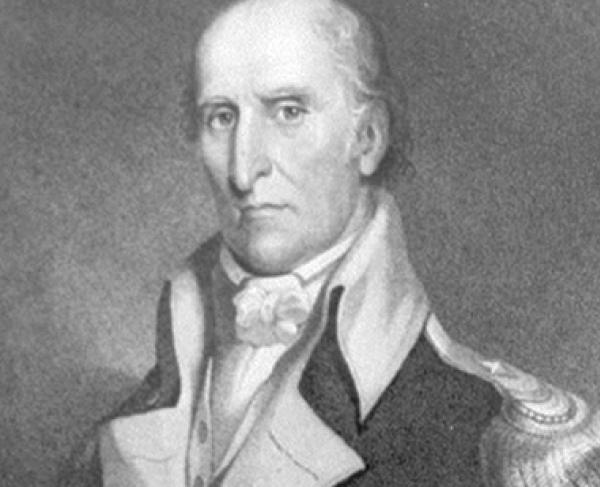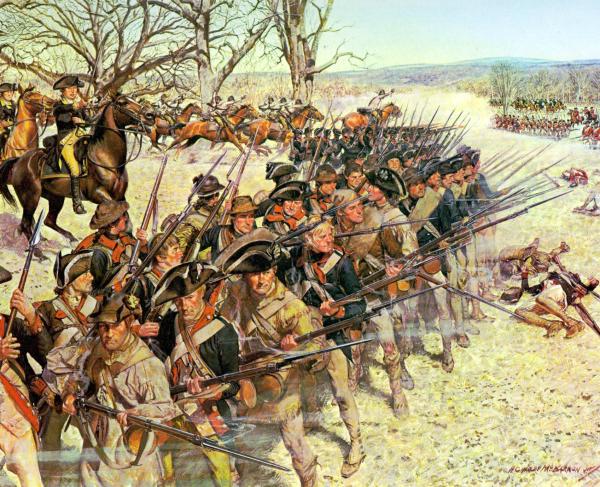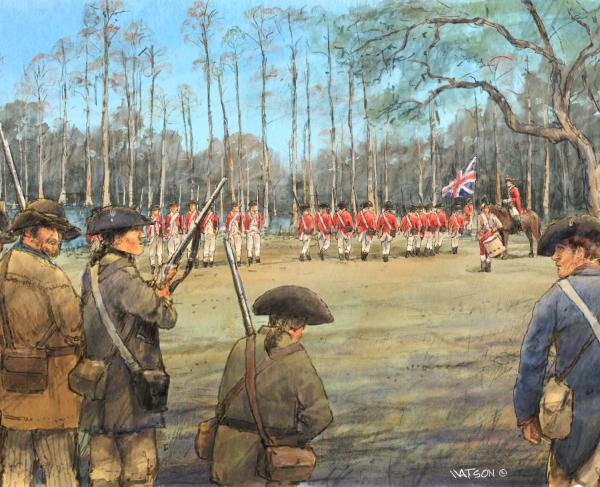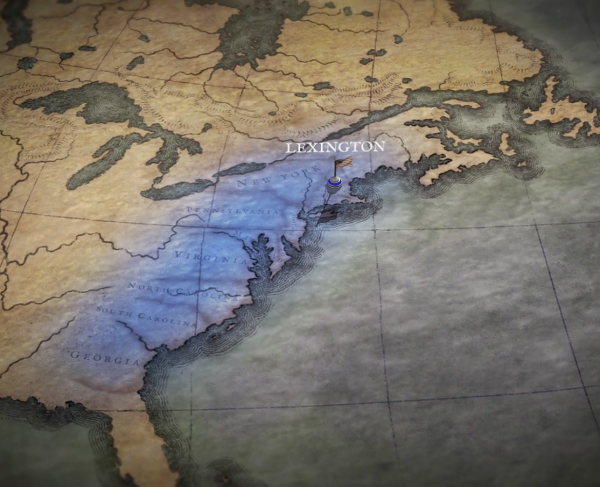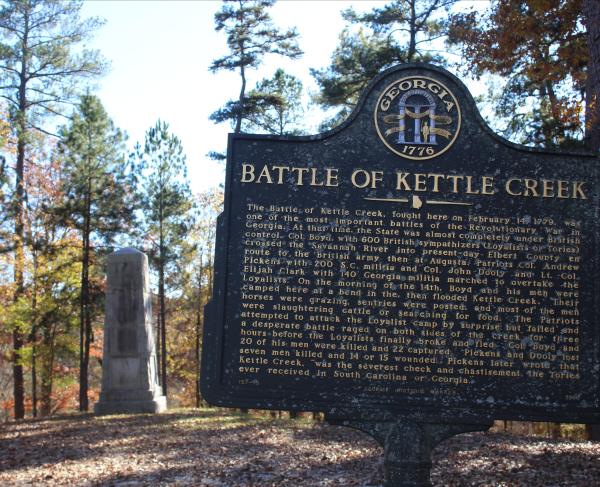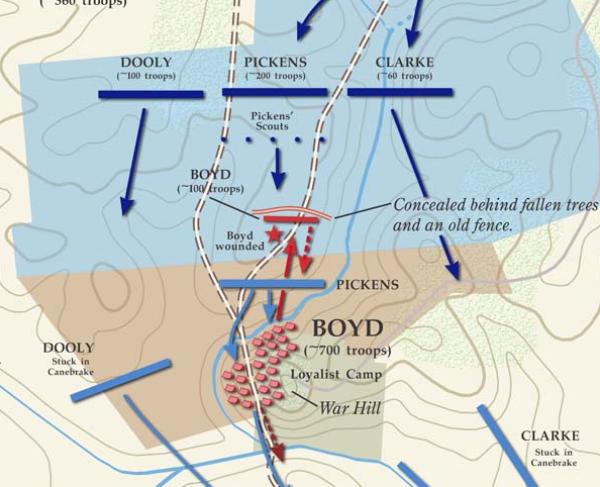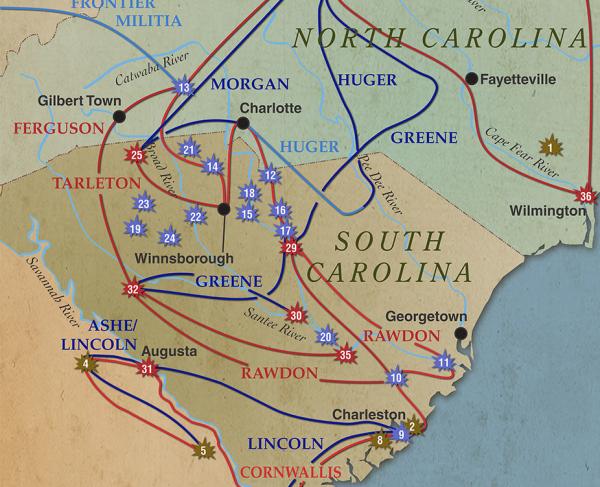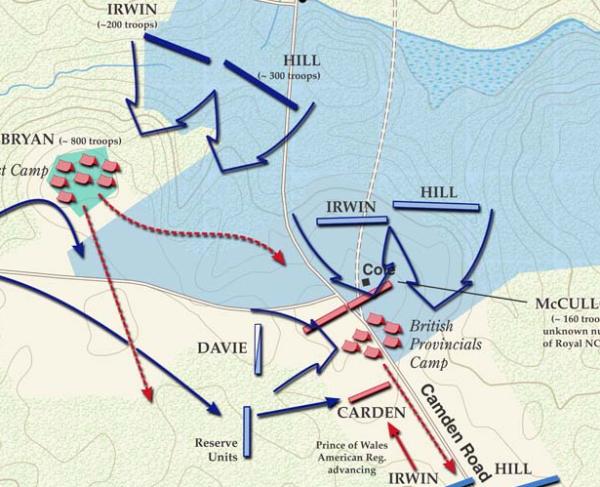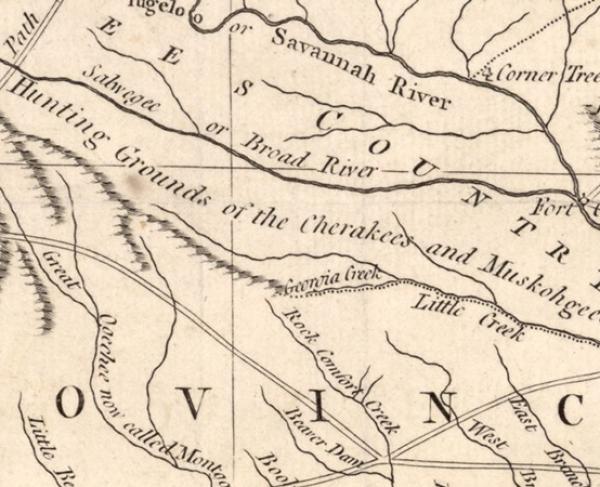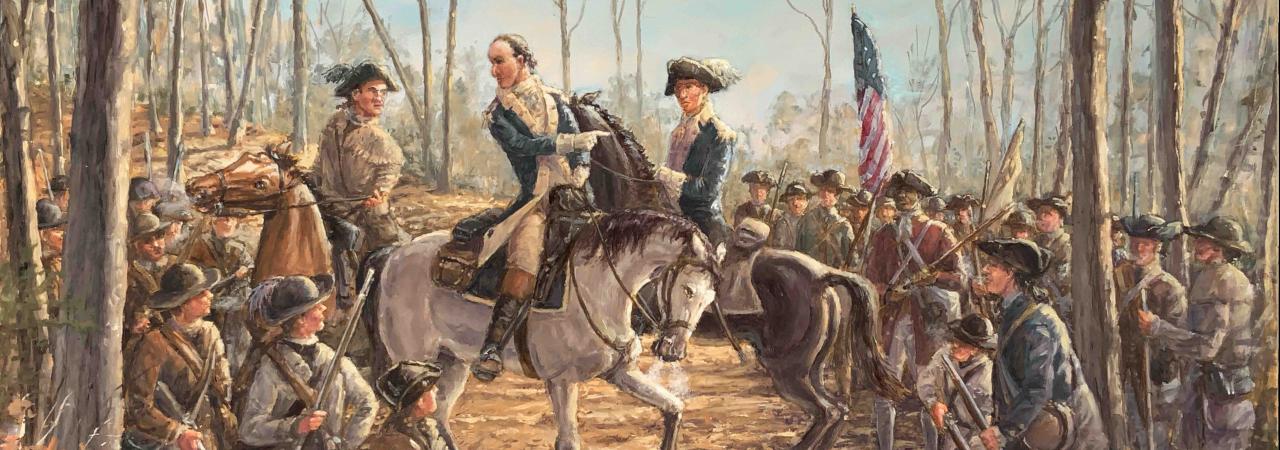
Kettle Creek
Georgia | Feb 14, 1779
The first major victory for the Patriot forces in the back country of Georgia during the American Revolution, the Battle of Kettle Creek, ended with the defeat of a Loyalist militia force on their way to British-controlled Augusta.
How It Ended
Patriot Victory. From beginning to end, the Battle of Kettle Creek lasted about four hours and ended with significant casualties for the Loyalist militia, including the death of their commander John Boyd. The Patriot victory at Kettle Creek convinced the commander of Augusta, Lieutenant Colonel Archibald Campbell, to abandon the city.
In Context
By 1778, it was becoming clear that British attempts to subdue the northern colonies were being met with mixed results. While successful during the 1776 New York Campaign and Philadelphia Campaign of 1777, British fortunes turned decidedly after Saratoga—and the new alliance between the Americans and the French. Thus, the British looked to undertake a "southern strategy" in hopes of subduing the southern colonies and bringing the loyalist forces there into the war.
After taking the city of Savannah, Georgia, on December 29, 1778, the British then moved inland to take Augusta. By the first week of February 1779, Augusta was under British control. Recruiting parties were sent off into the backcountry of North and South Carolina in hopes of rallying Loyalists to the cause.
In early February 1779, Colonel John Boyd set out with a newly raised regiment of 800 Tories. His goal was to unite with British General Archibald Campbell’s force, which had successfully captured Augusta, Georgia. During their march south, however, Boyd’s men suffered about 100 casualties inflicted upon them by pursuing Patriot partisans.
After crossing the Savannah River, Boyd ordered his men to rest and make camp on the north side of Kettle Creek in Wilkes County, Georgia. Unbeknownst to Boyd, about 350 Patriots under the overall command of Colonel Andrew Pickens were close by, preparing to strike.
Splitting his men into three columns, Pickens attacked at 10 A.M. on the morning of February 14, 1779. Catching the Tories by surprise, Pickens drove the enemy’s pickets back into their camp.
Although the Tories enjoyed numerical superiority, the Patriots’ sudden attack left them with little time to prepare. Perhaps hoping to buy time, Boyd ordered his main force to take defensive positions on a hill at the rear of the camp while he advanced with 100 men and took position behind a makeshift breastwork, opposite the Patriot center.
Boyd’s small detachment fought bravely, but his men were outflanked and driven back. Before he could reach the relative safety of his main force, Boyd was hit several times, falling mortally wounded on the field of battle.
As Pickens attacked in the center, his flanking columns under John Dooly and Elijah Clarke emerged from swampy ground on the left and right to join the assault on the Tory’s main line. Boyd’s regiment was now led by Major William Augustus Spurgeon Jr.
Eventually, despite outnumbering the Patriots roughly two-to-one and commanding the higher ground, the Tories began to give way, abandoning horses and supplies and fleeing across the creek.
By the time the fighting ceased, the Tory regiment raised by Boyd was all but destroyed.
21
115
From beginning to end, the Battle of Kettle Creek lasted about four hours. Of about 700 men engaged, the Loyalists suffered roughly 115 casualties. On the Patriot side, Pickens’s force lost about 21 men killed and wounded. However, 33 Patriot prisoners being held by Boyd were freed when their captors were scattered.
Kettle Creek: Featured Resources
All battles of the Southern Theater 1775 - 1779 Campaign
Related Battles
420
700
21
115
